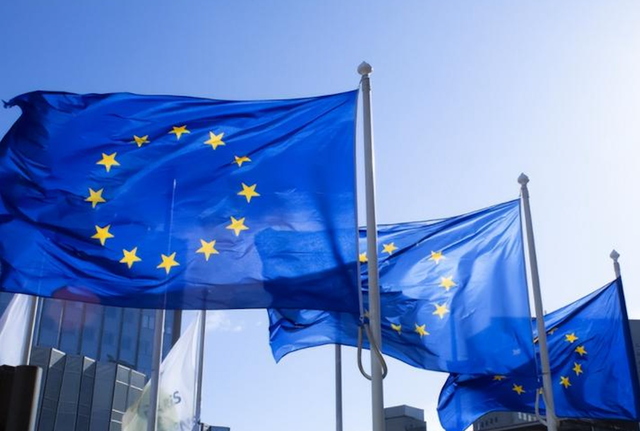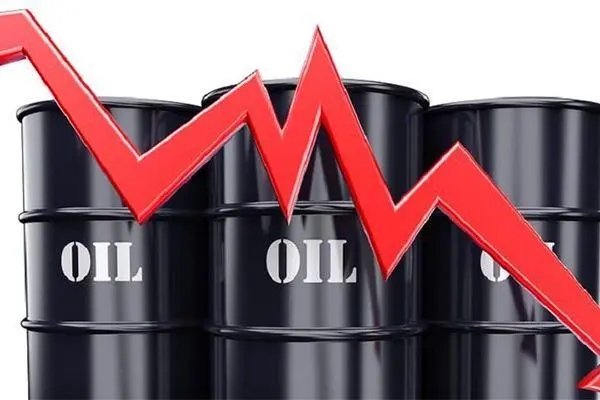The EU's price limit mechanism for Russian maritime oil products came into force on the 5th, and the G7 and Australia also took the same price limit measures. This is following the implementation of the price ceiling of $ 60 per barrel of Russian crude oil in December last year, the Western countries once again to Russian oil products exports to take price limit initiatives. At the same time, the EU ban on imports of Russian oil products sanctions also came into force on the 5th.
Analysts believe that the West's price limits and embargoes on Russian oil products could destabilize global oil prices and lead to changes in the flow of oil trade. At the same time, the EU inflation rate has fallen recently but is still at a high level, the impact of sanctions backlash will make it face the risk of inflation rebound.
The EU wields the "stick" of price limits again
According to a statement issued by the European Commission (EC) on the 4th, the price limit mechanism covers all oil products exported from Russia, setting a price ceiling of US$100 per barrel for more expensive products such as gasoline, diesel and paraffin, and US$45 per barrel for cheaper oil products such as fuel oil and naphtha.

As with last year's $60 per barrel cap on Russian crude oil, if Russia sells oil products to third countries at prices above the cap level, the country taking the cap will no longer provide trade, insurance, financial and transport services, as Western companies control most of the world's maritime trade insurance and other related business.
The price limit mechanism has a 55-day buffer period. The EC said it will continuously monitor and regularly assess and adjust this price cap to ensure its effectiveness and impact.
EC President von der Leyen said in a statement that it had decided in agreement with the G7 to "put further pressure" on Russia through the price cap. US Treasury Secretary Yellen said on 3 March that the price cap would "play a key role".
In response to this measure, the Russian side responded that it would not supply oil and oil products to countries where price caps are in place; proposals such as restricting oil imports from Russia and setting price caps on Russian oil would only lead to a spike in oil prices.
In June last year, the EU decided to ban the purchase of Russian petroleum products such as gasoline, diesel and fuel oil by sea transport, and the ban came into effect on the same 5th.
Analysts quoted by the US consumer news and business channel said that the sanctions imposed on Russian crude oil have so far been a "complete failure" and that the new price cap could also prove to be "irrelevant".
Oil prices may be under pressure to move higher
Market analysts believe that oil is an important global commodity. The imposition of price restrictions and embargoes on Russian oil products could lead to tight supply and higher prices for oil products, especially diesel, on the international market in the short term.
S&P Global Commodities European fuel research director Hedi Grati said that if Russian diesel exports are severely restricted, the EU will compete with other countries for diesel, diesel prices will face continued upward pressure.
Recently, both US and European gas and diesel prices have risen, partly due to EU stockpiling before sanctions come into effect and market fears that supplies may be reduced when sanctions come into effect.
At the same time, the EU to seek alternative sources of oil products, will go around far from the Middle East, the United States and other places to increase imports, while Russia will increase exports to Asia, Africa and Latin America, both sides will face increased pressure on transport costs, while leading to changes in the flow of oil trade.
The Russian Ministry of Energy has previously stated that Russia refuses to cooperate with traders who enforce Western price restrictions in any form and that illegal Western intervention in the market mechanism is disrupting world energy supplies and that the countries concerned should work together to rectify this.
Zhang Longxing, director of the oil products division of the Shanghai Oil and Gas Trading Centre, told reporters that price restrictions and embargoes would lead to a "trade flow shift" in oil products, which could also lead to a tightening of global oil supply and higher prices for diesel and other oil products. At the same time, the United States to the EU's gasoline, diesel and other refined oil exports will be on the rise.

EU faces risk of inflation rebound
For the EU, where inflation levels remain high, price limits and embargoes on Russian oil products will offset its efforts to curb inflation, and the economy will face downside risks.
According to media reports here, Europe will import more than 700,000 barrels of diesel fuel per day from Russia in 2022, accounting for about half of Europe's diesel imports. Europe will find it difficult to find alternatives to Russian diesel in a short time, and imports from alternative markets will significantly increase transport costs.
Soaring energy and other prices have been a key factor in Europe's high inflation over the past year, and although inflation has fallen recently, the cost-of-living crisis continues. This is also an important factor in the successive outbreaks of multi-industry trade unions in many European countries demanding higher wages and benefits and holding strikes.
Preliminary Eurostat statistics show that inflation in the Eurozone was 8.5% in January, well above the European Central Bank's medium-term target of 2%.
Igor Yushkov, chief analyst of the Russian National Energy Security Foundation, said in a recent interview with Xinhua that the sanctions taken by the West against Russian oil would reduce the efficiency of the global oil market, and the ultimate consequences would be borne by global consumers.

